
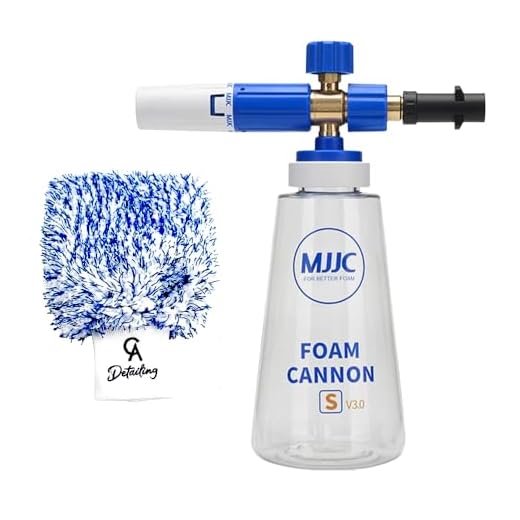
Using a standard detergent in a high-pressure cleaning device is not advisable. Such formulations typically contain ingredients that may harm both the machine’s components and the surfaces being cleaned. Opt for detergents specifically designed for use with high-pressure cleaners instead. These products ensure safe and effective cleaning without causing damage.
Always check the owner’s manual for your specific model. Many manufacturers outline compatible cleaning agents and provide guidance on their proper use. Using a non-approved detergent can void the warranty and result in costly repairs.
If you’re aiming for optimal cleaning results, use specially formulated solutions with your equipment. They typically enhance the cleaning power while protecting the internal mechanisms from corrosive substances. Remember, safeguarding your investment starts with the correct choice of products.
Using Kitchen Cleaner in a High-Pressure Cleaning Device
Using a kitchen cleaner designed for dishware in a high-pressure cleaning device is not advisable. This type of cleaner is often too thick, creating potential clogs in the system. Additionally, the residue left behind may lead to unwanted foaming or damage the internal components.
Instead, opt for products specifically formulated for this type of equipment. These detergents are engineered to work effectively with high pressures and will not harm seals or hoses. If unsure, always consult the manufacturer’s guidelines for recommended cleaning solutions.
For basic cleaning tasks, consider a mild biodegradable cleaner that won’t cause harm to the environment or the equipment. Thoroughly rinse the surfaces after applying any cleaner to prevent residue buildup that could hinder future use.
In situations where a DIY solution is preferred, a mixture of vinegar and water may suffice for light cleaning. This simple blend can help remove grease and grime without risking damage to the machine.
Understanding the Risks of Using Dish Soap in Pressure Washers
Mixing common kitchen cleaning agents with machines designed for high-pressure tasks carries significant risks. Strong detergents can lead to equipment damage and void warranties. It’s crucial to consider how these cleaners interact with internal components before making any decisions.
Potential Equipment Damage
Utilising inappropriate cleaning solutions may cause:
- Corrosion: Some ingredients found in household detergents can corrode metal parts, leading to premature failure.
- Clogged Filters: Residue buildup can obstruct filters and nozzles, resulting in reduced performance or complete blockage.
- Seal Deterioration: Certain chemicals can degrade rubber and plastic seals, creating leaks and making repairs necessary.
Environmental Concerns

Many domestic cleaners contain phosphates and other harmful substances that can impact local waterways. Improper disposal of run-off can lead to nutrient pollution and disrupt aquatic ecosystems.
Use designated cleaning solutions compatible with specific models to mitigate these risks. Always refer to the manufacturer’s guidelines to ensure safe operation and long-lasting equipment functionality.
Benefits of Using Detergents Specifically Designed for Pressure Cleaners
Utilising cleaning agents specifically formulated for high-pressure equipment ensures optimal performance and safety. These products are crafted with precise chemical compositions that remove dirt, grease, and stains without damaging the equipment components. Their foaming action allows for even distribution, enhancing the overall cleaning efficiency.
Protects Equipment
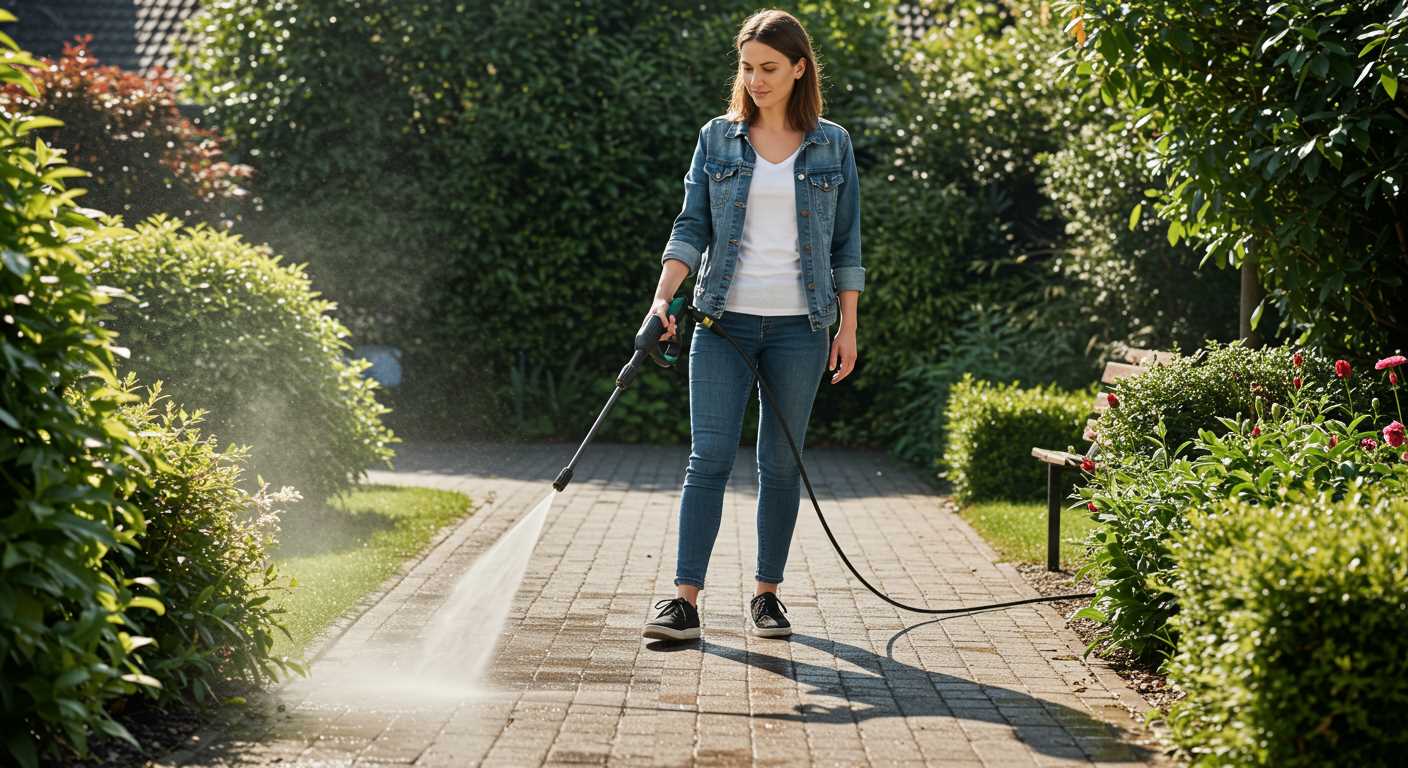
Specialised solutions typically contain surfactants that prevent mineral build-up within nozzles and hoses, which can lead to costly repairs or replacements. Using the correct cleaners helps maintain the integrity of internal components, prolonging the lifespan of the machinery.
Environmentally Friendly Options
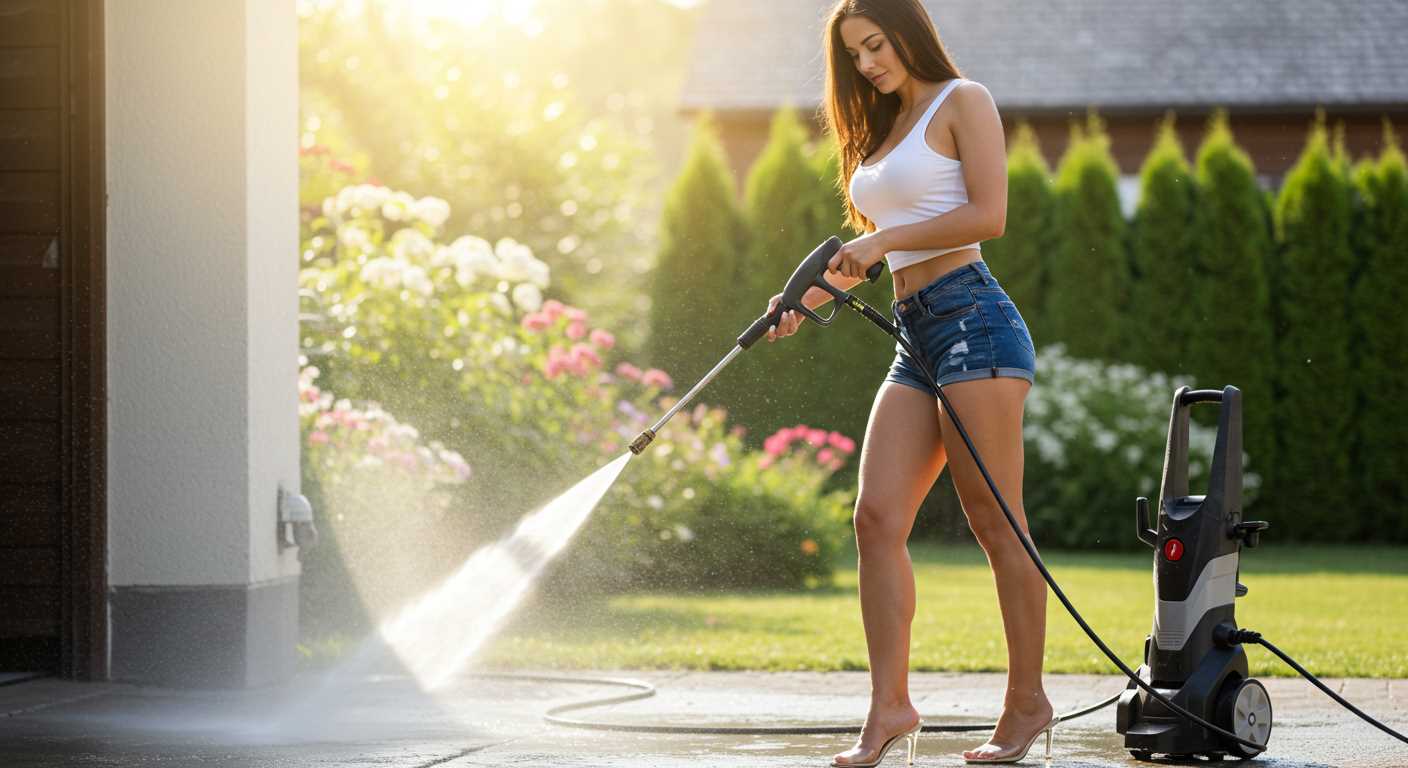
Many detergents formulated for high-pressure systems are biodegradable and eco-conscious. This consideration reduces environmental impact while still providing strong cleaning capabilities. Selecting the right product aids in achieving a balance between effectiveness and environmental responsibility.
Steps to Properly Use Soap in a Washing Setup
Start with testing a small amount of detergent specifically formulated for washing equipment. This allows for assessment of compatibility with the machine and the surfaces to be cleaned.
Next, prepare the solution. Mix the cleaning agent with water according to the manufacturer’s instructions. Ensure the ratio of detergent to water is suitable for the task at hand, especially if tackling tough stains.
After mixing, fill the detergent tank of the unit. Make sure it is securely closed to avoid leaks during operation.
Application Process
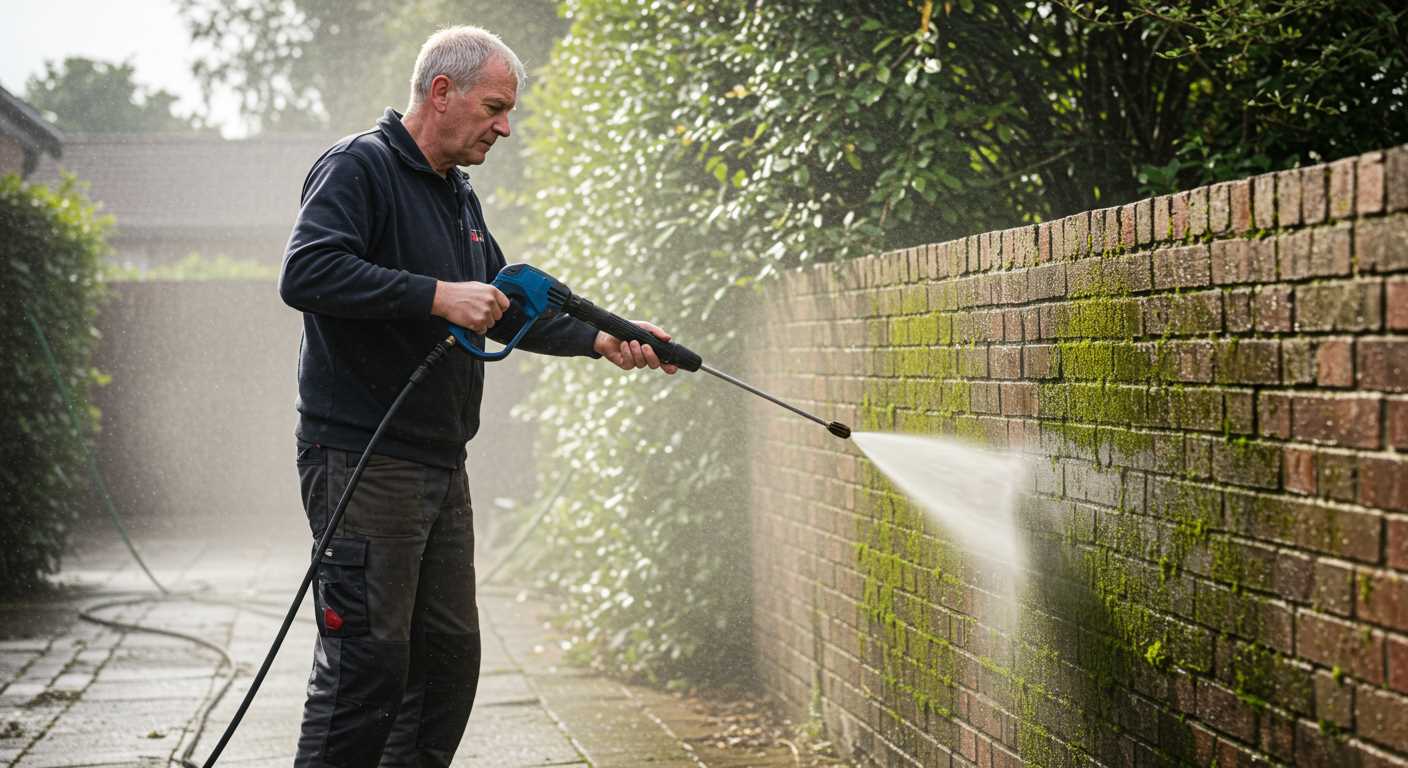
Begin by adjusting the unit’s settings according to the detergent type and surface being treated. A low-pressure nozzle is recommended for applying the cleaning mix to prevent damage.
Apply the solution evenly over the surface, starting from the bottom and moving upward. This approach helps prevent streaking and ensures thorough coverage.
Rinsing
After allowing the detergent to sit for a few minutes, switch to a high-pressure nozzle to rinse off the cleaning mix. Ensure all residues are removed, as leftover detergent can attract dirt.
| Step | Action |
|---|---|
| 1 | Test a small amount of detergent. |
| 2 | Mix with water as instructed. |
| 3 | Fill the detergent tank. |
| 4 | Adjust settings. |
| 5 | Apply solution evenly. |
| 6 | Rinse thoroughly. |
Following these steps enhances the efficiency of the cleaning process while maintaining the integrity of the equipment and surfaces.
How to Choose the Right Cleaning Solution for Your Pressure Washing Equipment
Prioritise cleaning agents specifically formulated for high-pressure units. These detergents are engineered to enhance performance without risking damage to components.
- Identify the Surface: Different surfaces require distinct formulations. For instance, delicate materials like wood need gentle cleaners, whereas concrete can handle more aggressive agents.
- Check Manufacturer Recommendations: Always refer to the equipment manual to ensure compatibility. Each unit may have specific guidelines on safe cleaning agents.
- Concentration Levels: Select a solution that matches the grime level on the surface. Heavily soiled areas may need concentrated formulas while light cleaning can use diluted solutions.
- Eco-friendliness: Opt for biodegradable products whenever possible. These not only lessen environmental impact but are often safer for non-specified surfaces.
- Multi-functionality: Some detergents serve multiple purposes, including stain removal and degreasing. A versatile cleaner can save both time and money.
Evaluating the effectiveness of various cleaning agents is essential. Test small areas before full application to observe results and prevent any potential damage.
Lastly, consider seasonal factors. Certain formulations are better suited for specific times of the year, adapting to different environmental conditions enhances cleaning outcomes.
Impact of Dish Soap on Different Surfaces and Materials
.jpg)
Using conventional cleaning liquids can lead to unintended damage on various surfaces. When applied to painted or varnished finishes, the components in standard cleaners can strip away protective layers, resulting in dullness or discoloration.
On porous materials like wood or brick, residues left behind after rinsing can attract dirt and grime, leading to a buildup that makes future cleaning more challenging. Surfaces such as marble or granite are particularly sensitive; they can etch when exposed to harsh chemicals, compromising their structural integrity.
Metal Surfaces
For metals, especially those without protective coatings, ordinary cleaning agents can accelerate rust formation due to chemical reactions. Stainless steel, while resilient, still requires specific products to maintain its shine and prevent tarnishing.
Fabric and Upholstery
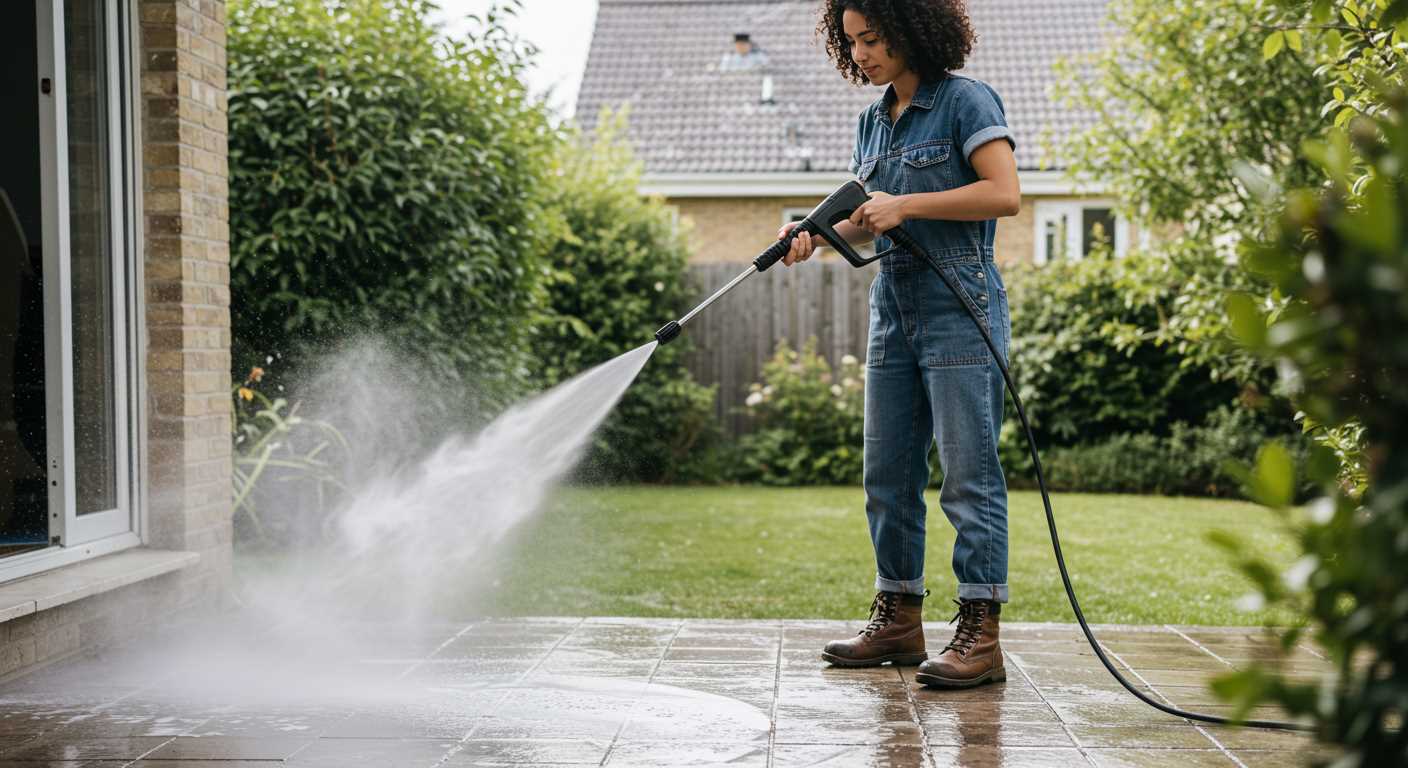
In the case of fabrics and upholstery, regular cleansers often leave behind sticky residues that attract dust and grime, leading to accelerated fading and wear. Always check fabric care labels and opt for solutions recommended for the specific material to avoid undesirable effects.
Best Practices for Cleaning and Maintaining Your Pressure Equipment after Use
After every cleaning session, it’s crucial to perform routine maintenance on your equipment to ensure longevity and optimal performance. Start by disconnecting the supply from the unit to prevent any residual liquid from leaking. It’s advisable to let the machine cool before attempting further cleaning.
Flushing the System
Run clean water through the system for a few minutes. This helps remove any remnants of cleaning agents or contaminants. Be sure to use a compatible nozzle to avoid any damage during this process. Flushing protects internal components and maintains their efficacy over time.
Inspecting for Damage
After use, inspect hoses, connections, and nozzles for wear and tear. Look for any cracks or leaks that may have developed. Replace any worn components as needed. Keeping everything in top condition reduces the risk of serious malfunctions and ensures your equipment operates efficiently.
Additionally, cleaning the filter regularly prevents clogs and allows for better suction, ensuring maximum efficacy during use. Store your device in a clean, dry location away from extreme temperatures to protect it further. Follow these steps diligently to extend the life of your cleaning equipment and maintain its effectiveness for future tasks.
FAQ:
Is it safe to use dish soap in a pressure washer?
Using dish soap in a pressure washer is generally not recommended. Pressure washers are designed to work with specific detergents that are created for high-pressure systems. Dish soap can create excessive suds, which may clog the machine and lead to damage. Additionally, some dish soaps contain ingredients that could harm painted surfaces or different materials. It’s best to use products that are specifically made for pressure washing to ensure proper functioning and safety.
What type of soap should I use in my pressure washer?
For pressure washing, it’s advisable to use detergents that are specially formulated for pressure washers. These detergents are designed to foam appropriately and reduce sudsing, which is essential for performance. Look for biodegradable cleaners or those that are safe for various surfaces such as wood, concrete, and car paint. Always refer to your pressure washer’s manual for recommendations on suitable soaps.
Can using dish soap harm my pressure washer?
Yes, using dish soap in your pressure washer can potentially cause harm. The high-pressure system may generate more foam than the soap can handle, leading to blockages in hoses and valves. Furthermore, some components of dish soap can corrode or degrade parts of the washer over time. To avoid these issues, it is wise to stick with cleaners intended for pressure washing.
Are there any alternatives to dish soap that I can use?
Yes, there are plenty of alternatives to dish soap for pressure washing. Look for commercial pressure washer detergents that are tailored for specific tasks, like degreasers, concrete cleaners, or environmentally friendly options. Many hardware stores or online retailers offer a wide selection of these cleaners, ensuring that you find one that matches the job you need to accomplish without risking damage to your equipment.
What happens if I accidentally use dish soap in my pressure washer?
If you accidentally use dish soap in your pressure washer, you may notice excessive foam production when you start the machine. This can lead to clogging and poor performance. If this occurs, it’s important to stop using the machine immediately. You should flush the system with clean water to remove the soap residue. If you experience ongoing issues, consulting a professional service may be necessary to assess any damage or blockage.







